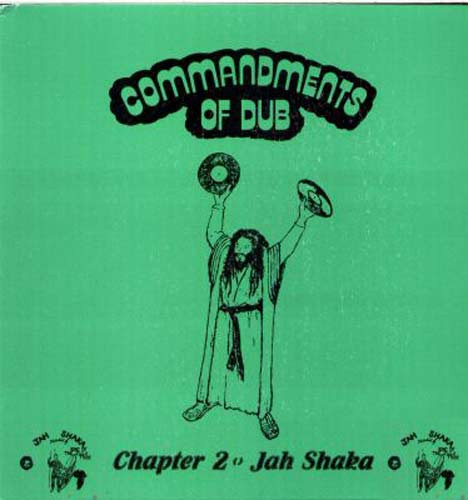- Welcome to Cook'd and Bomb'd.
-
 Is this proof that AI has...
by JaDanketies
Is this proof that AI has...
by JaDanketies
[Today at 08:46:53 PM] -
 Terry & June gets a content...
by Ignatius_S
Terry & June gets a content...
by Ignatius_S
[Today at 08:44:48 PM] -
 The Captain Tom grift continues...
by idunnosomename
The Captain Tom grift continues...
by idunnosomename
[Today at 08:44:41 PM] -
 Snooker 23/24
by Found Wound Round
Snooker 23/24
by Found Wound Round
[Today at 08:43:13 PM] -
 Don't
by Bentpitch
Don't
by Bentpitch
[Today at 08:42:06 PM] -
 Wrasslin' Talk: Punk out
by Old Thrashbarg
Wrasslin' Talk: Punk out
by Old Thrashbarg
[Today at 08:37:32 PM] -
 RIP Terry Carter - last surviving...
by Ignatius_S
RIP Terry Carter - last surviving...
by Ignatius_S
[Today at 08:37:18 PM] -
 Load of horses gone mental...
by Pink Gregory
Load of horses gone mental...
by Pink Gregory
[Today at 08:37:06 PM] -
 Trans Mania: Graham Linehan...
by extraordinary walnuts
Trans Mania: Graham Linehan...
by extraordinary walnuts
[Today at 08:31:33 PM] -
 Favourite moviegoing experiences...
by kalowski
Favourite moviegoing experiences...
by kalowski
[Today at 08:28:51 PM]
Members
 Total Members: 17,827
Total Members: 17,827 Latest: skinnylike
Latest: skinnylike
Stats
 Total Posts: 5,584,082
Total Posts: 5,584,082 Total Topics: 106,750
Total Topics: 106,750 Online Today: 1,310
Online Today: 1,310 Online Ever: 3,311
Online Ever: 3,311- (July 08, 2021, 03:14:41 AM)
Users Online
 Users: 106
Users: 106 Guests: 907
Guests: 907 Total: 1013
Total: 1013 Poobum
Poobum Video Game Fan 2000
Video Game Fan 2000 JaDanketies
JaDanketies lankyguy95
lankyguy95 Steven88
Steven88 Huxleys Babkins
Huxleys Babkins gepree
gepree Kelvin
Kelvin horse_renoir
horse_renoir TommyTurnips
TommyTurnips chutnut
chutnut Anagram of a Shit Name
Anagram of a Shit Name xtvkvp
xtvkvp steve98
steve98 Kankurette
Kankurette Underturd
Underturd Stoneage Dinosaurs
Stoneage Dinosaurs Holy Dread
Holy Dread matjam13
matjam13 Dr Rock
Dr Rock Moj
Moj Buelligan
Buelligan C_Larence
C_Larence convulsivespace
convulsivespace Tombola
Tombola Twilkes
Twilkes Myriad
Myriad Frank Wank
Frank Wank Good Hank
Good Hank CptPorkDouglas
CptPorkDouglas twosclues
twosclues mrfridge
mrfridge McChesney Duntz
McChesney Duntz Mx Wrongs
Mx Wrongs KaraokeDragon
KaraokeDragon Pink Gregory
Pink Gregory Adey
Adey BlodwynPig
BlodwynPig Simply_The_Bestest
Simply_The_Bestest mikej
mikej gib
gib frajer
frajer Quote
Quote Stone Cold Steve Austin
Stone Cold Steve Austin Found Wound Round
Found Wound Round Mr Trumpet
Mr Trumpet Bentpitch
Bentpitch Gulftastic
Gulftastic George White
George White The Crumb
The Crumb McDead
McDead Enzo
Enzo mikerus
mikerus Pete23
Pete23 Ted-Maul
Ted-Maul Pseudopath
Pseudopath mrsleepy321
mrsleepy321 Voltan (Man of Steel)
Voltan (Man of Steel) Small Man Big Horse
Small Man Big Horse The Roofdog
The Roofdog cakeinmilk
cakeinmilk drummersaredeaf
drummersaredeaf bluestar
bluestar Old Thrashbarg
Old Thrashbarg Gethin Grave
Gethin Grave CrackerFactory
CrackerFactory Butchers Blind
Butchers Blind ropeadope
ropeadope undergroundcow75
undergroundcow75 daf
daf fink
fink Cold Meat Platter
Cold Meat Platter thevoola
thevoola Fishfinger
Fishfinger Theoretical Dentist
Theoretical Dentist PlanktonSideburns
PlanktonSideburns ros vulgaris
ros vulgaris bigfatheart
bigfatheart Mister Six
Mister Six Nice Relaxing Poo
Nice Relaxing Poo Yussef Dent
Yussef Dent Gambrinus
GambrinusNoir mysteries and gumshoe detectives
Started by dead-ced-dead, March 02, 2022, 10:18:43 AM
Previous topic - Next topic
User actions

